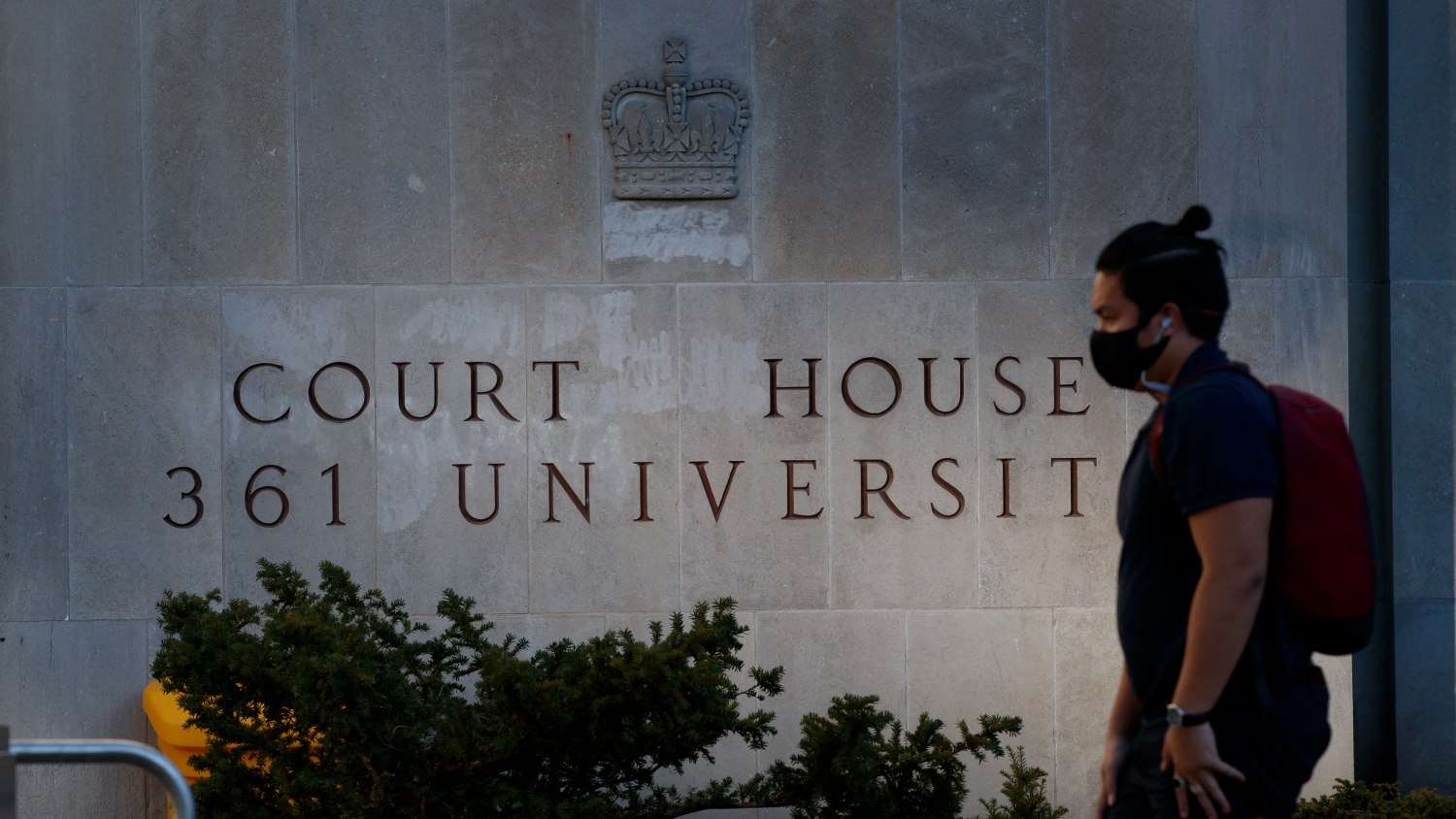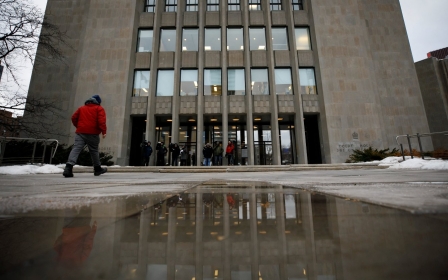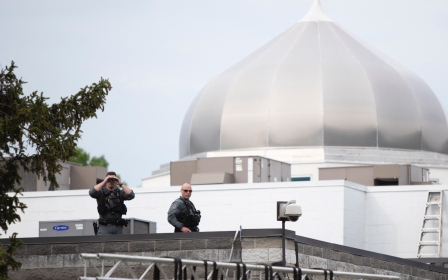Ontario court finds bias in audit against Muslim charity, but dismisses case

A Canadian court has dismissed a legal filing brought by a major Muslim organisation that is accusing the government of bias in an audit. The court ruled there was bias in the case, but said it could not intervene in an ongoing government investigation.
Ontario Superior Court Justice Markus Koehnen said in his ruling, that while he is sympathetic to many of the arguments laid out by the Muslim Association of Canada (Mac), the court should not make a ruling on a government body's ongoing process.
"In some respects, the current status of the audit can be seen as a work in progress," Koehnen wrote, as reported by the Canadian press. "Intervening now would be akin to the court interfering in the middle of a process and telling a party that it could not think a certain thought as it was working through a problem."
Mac, one of the largest Muslim organisations in the country with more than a dozen chapters, welcomed the fact that there was an acknowledgment of the biases against it. However, Mac said the dismissal was a blow to their case.
"It's delaying justice for the Muslim community. They are acknowledging that there is bias in the CRA process and government bureaucracies but stating the judge's hands are tied because the bureaucratic process is not completed," Nabil Sultan, Mac's director of communications and community engagement, told Middle East Eye.
New MEE newsletter: Jerusalem Dispatch
Sign up to get the latest insights and analysis on Israel-Palestine, alongside Turkey Unpacked and other MEE newsletters
"And we are deeply concerned with that because essentially it prioritises government bureaucracy over the charter rights of Muslim Canadians."
Sultan said that Mac is deliberating its next steps and whether or not to appeal the case, adding that the organisation would not stop advocating against the targeting of Muslim charities in the country.
"The court's ruling is not only legally wrong but also departs from the courts' long-standing commitment to safeguarding the rights of all Canadians," Geoff Hall, a lawyer who represents Mac, said in a statement.
"When the state overreaches and the rights of Canadians are infringed, timely intervention is not just an option, it's an obligation. Unfortunately, the court has lost sight of this fundamental principle."
A yearslong battle
Its legal battle began in April 2022, when Mac submitted a filing with the Ontario Superior Court of Justice, and over the next several months it went through a number of court hearings discussing its case.
The filing comes as a result of a yearslong audit on the charity, which is being conducted by the Canada Revenue Agency (CRA). In 2015, the organisation received a notice from CRA that it would be audited.
Over the next 13 months, the CRA searched hundreds of desks and closets, and downloaded over a million financial transactions, nearly 200 gigabytes of email data, and almost 500,000 emails.
The audit is still taking place after eight years.
'This fight has to continue until Muslim Canadians are treated like all other Canadians in this country'
- Nabil Sultan, Muslim Association of Canada
Well into the audit process, Mac came to realise the audit was being conducted by the CRA's Review and Analysis Division (Rad) - a secretive arm of the agency tasked to sniff out terrorism financing in the charity sector in the aftermath of the 9/11 attacks in the US. Experts have said it tended to have an acute focus on Muslim charities.
The audit's conclusions flagged a number of concerns about the charity, including its organising of Eid festivals as well as youth activities.
"It is difficult to understand how makeup classes, sugar shacks, puppet shows, ski trips, dodgeball, movie and karaoke nights, ping pong, air hockey tables, or ‘a play mat with toys for smaller children’ relate to terrorism," Koehnen wrote in his ruling.
"I would be surprised if a church or synagogue had its charitable status revoked because it offered any of these activities."
Mac ended up receiving an Administrative Fairness Letter (AFL), a letter CRA sends out to charities explaining why it may not qualify for charitable status. When looking at the sources cited in the letter, some of the experts included known Islamophobic and far-right experts who perpetuate anti-Muslim sentiment.
Mac had argued in its court challenge that the CRA's audit infringes on several sections of Canada's Charter of Rights and Freedoms, including the freedom of religion, expression, and association.
The legal battle launched by Mac is the culmination of years of the Muslim community being subject to unwarranted targeting and discrimination.
For years, the CRA's targeting of Muslim charities led to fear amongst Canada's Muslims, prompting a drop in support and donations to these Muslim organisations, experts and practitioners in the charity sector previously told MEE.
And Mac is not the only Muslim charity that has faced such audits. There has been extensive reporting in recent years about the CRA's targeting of Muslim charities.
MEE previously looked at 63 charities that had received a Notice of Intention to Revoke between 2015 and 2019 and found that while 60 percent of the organisations were given a chance to repeal their revocations, all the Muslim charities it reviewed during that period were not given the same chance.
"A court ruling like this just increases our resolve as Mac and as a Muslim community to continue the fight against Islamophobia. This fight has to continue until Muslim Canadians are treated like all other Canadians in this country," Sultan said.
Middle East Eye delivers independent and unrivalled coverage and analysis of the Middle East, North Africa and beyond. To learn more about republishing this content and the associated fees, please fill out this form. More about MEE can be found here.




